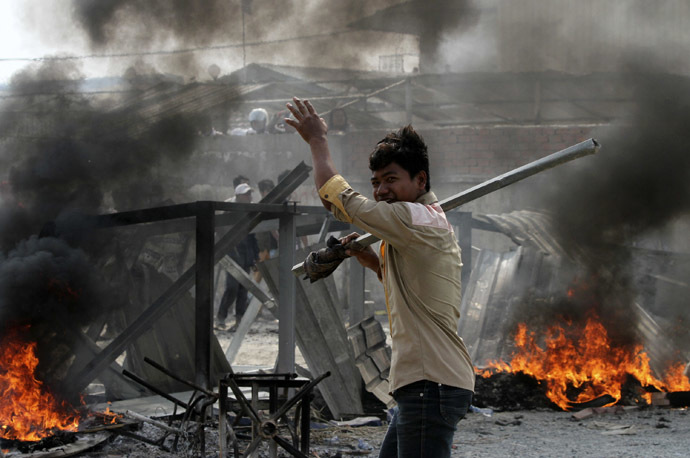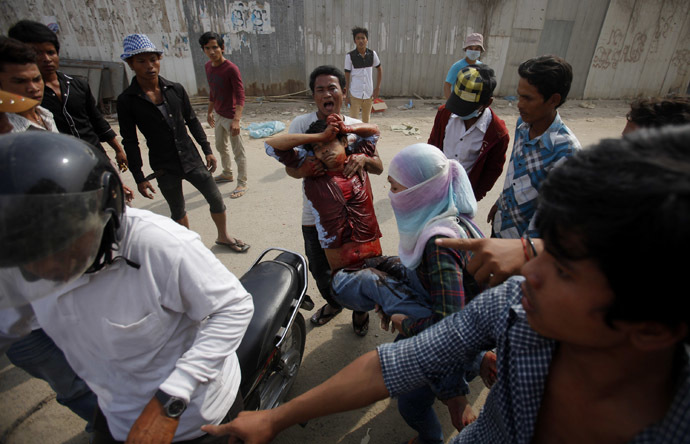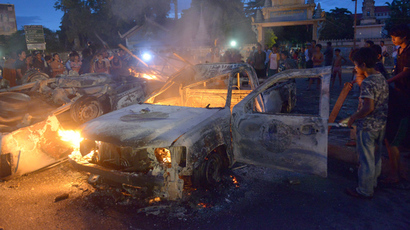Cambodian protesters killed as police crack down on garment workers' rally (PHOTOS)
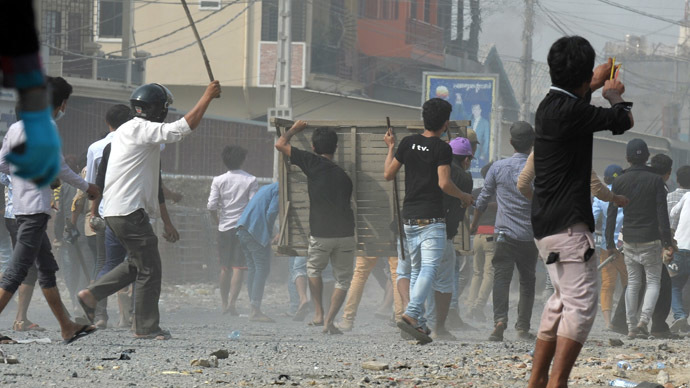
At least three people have been killed in the Cambodian capital, Phnom Penh, after security forces opened fire on garment workers rallying for higher wages, according to eyewitnesses.
Two human rights workers, who witnessed the events, reported the casualties to Reuters. They said security forces armed with assault rifles and pistols shot at demonstrators who hurled rocks, bottles and petrol bombs outside a factory in the city.
After firing warning shots in the air, police began firing at the protesters, AFP’s photographer at the scene reported.
The Cambodian security forces have acknowledged that one person has died and several are wounded as a result of the crackdown, which, according to law enforcement agencies, was provoked by the demonstrators who injured nine officers with stones and slingshots.
"We were afraid about security, so we had to crack down on them," AFP reported Kheng Tito as saying. "If we allow them to continue the strike, it will become anarchy."
Human rights activists have called for a three-day vigil in memory of the victims of the police violence.
Starting this afternoon at 4.30pm three-day vigil at #DemocracySquare for workers killed by police
— Sochua Mu (@MuSochua) January 3, 2014
It’s estimated that around 350,000 workers of more than 500 garment factories are currently on strike in Cambodia, demanding the minimum wage be doubled to $160 a month. The government has only offered a 20% pay rise of $100 a month, and has insisted it will not compromise any further.
"There will be no more negotiation, as the ministry has already decided to increase minimum wages to $100 a month," Labor Ministry spokesman Heng Sour said, The Wall Street Journal reported.
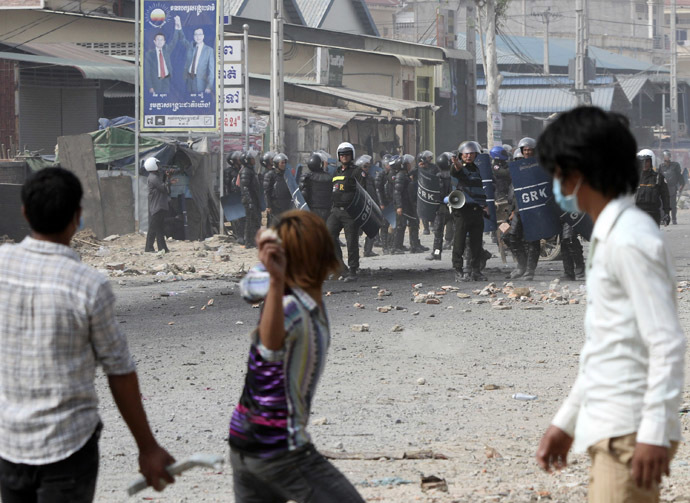
On Thursday, Cambodian troops armed with batons and rifles were deployed in Phnom Penh to break up the protest.
"Soldiers beat up everyone. They had sticks, electric batons, slingshots and stones," labor rights activist Chhorn Sokha, of the Community Legal Education Center, told Reuters, whose photographer was among those hit by batons.
The activist said at least 10 protesters were detained. There were also reports of Buddhist monks being beaten up.
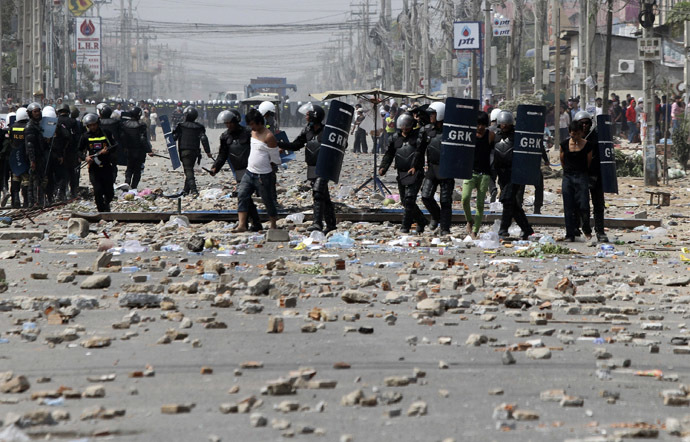
The violent dispersal of garment workers with the help of the army was condemned by rights activists.
“The use of [military] Special Command Unit 911 to suppress demonstrations near Yak Jin factory in Phnom Penh's Pursenchey district is unprecedented and signals a disturbing new tactic by authorities to quash what have been largely peaceful protests,'' local human rights group LICADHO was cited as saying by AP. “Some of those held are believed to have been severely beaten as they were arrested.''
The garment and footwear production industry is Cambodia's biggest export business, annually earning the country around $5 billion. US and European retailers have been attracted to the region by the low wage costs, the major cause of the workers’ growing discontent. Last year saw 131 separate strikes in between January and November, up from 121 for all of 2012, according to the garment manufacturers' association’s figures.
